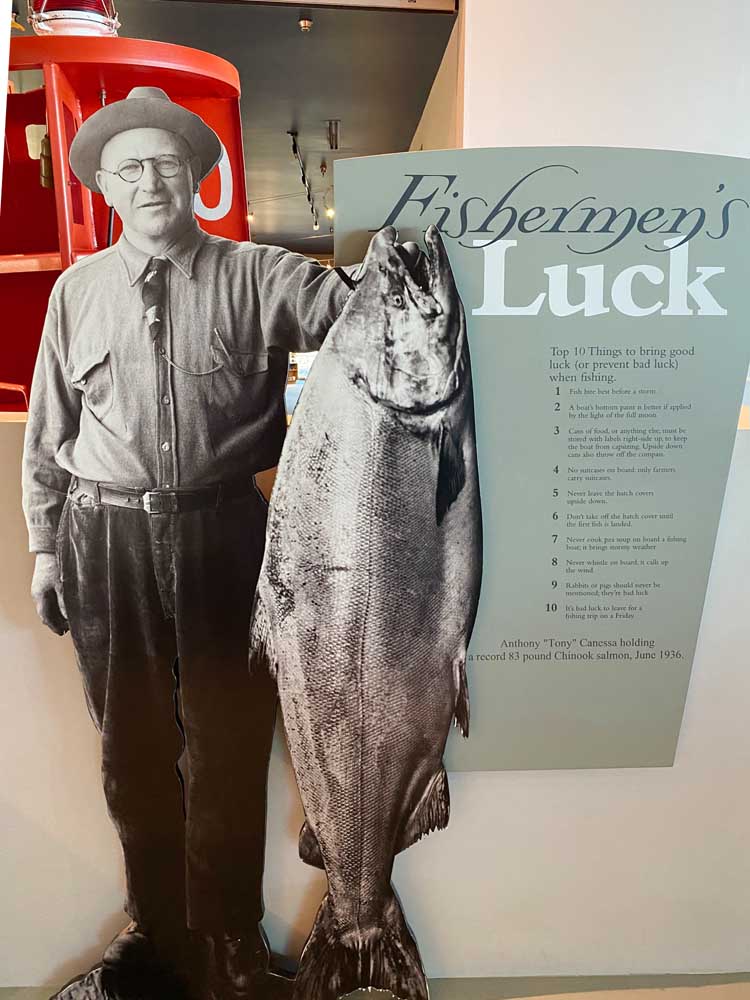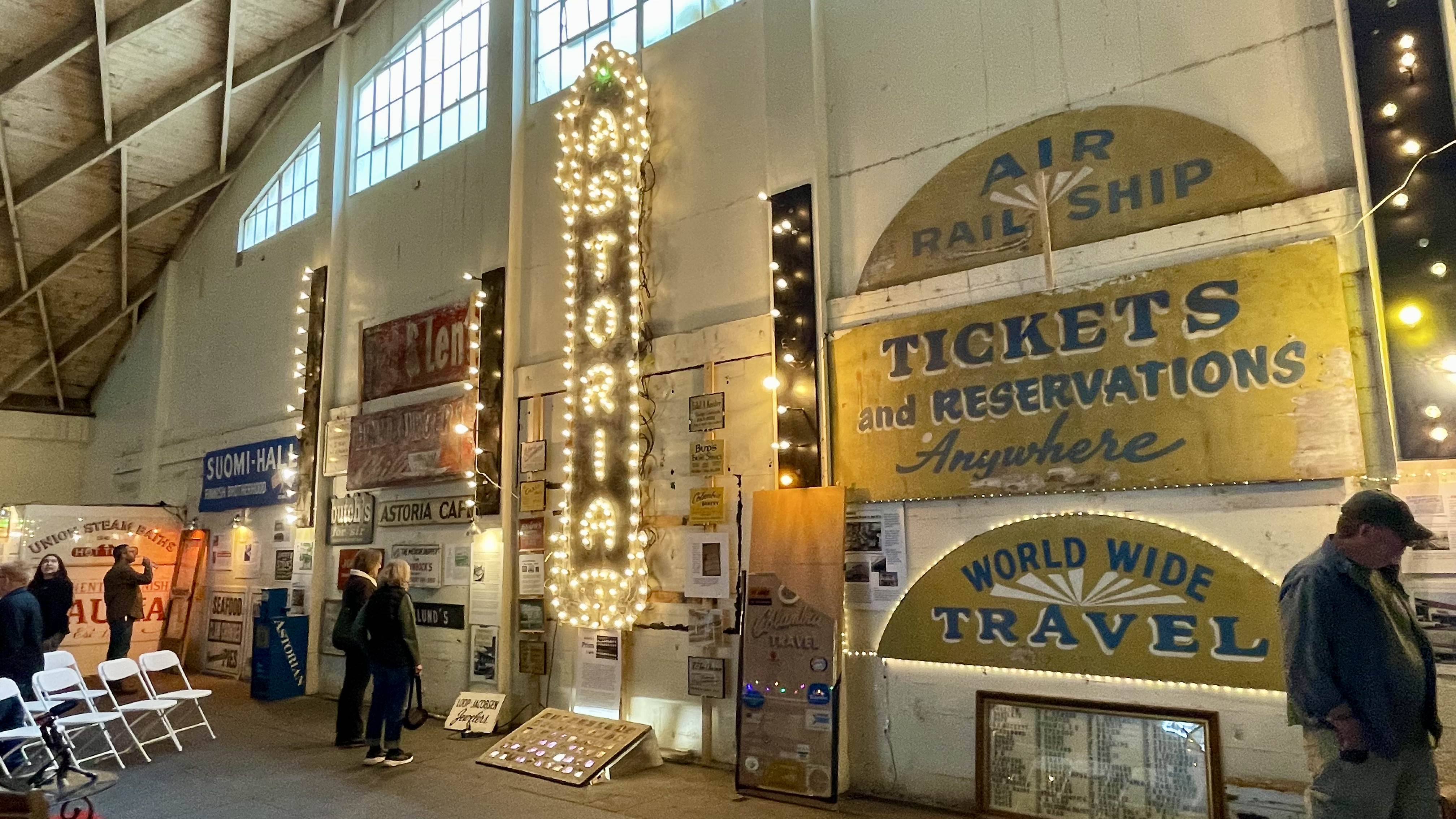Weekend Break: Maritime superstitions
Published 1:00 pm Friday, February 2, 2024

- “Fish bite best before a storm” and other common superstitions are listed in a display at the Columbia River Maritime Museum.
Life at sea during the Golden Age of Sail could be deadly.
To protect themselves against some of these dangers, sailors developed a special reverence for certain actions, rituals and beliefs — otherwise known as superstitions.
Many of these superstitions have carried into the present day. To this day, it’s not uncommon for a fisherman to yell at any fellow passenger who dares bring a banana onto their boat.
This seemingly irrational fear of bananas is said to have come from small fishing boats in the tropics. For boats that were transporting various cargoes, bananas were considered unlucky because of how quickly they would spoil.
Fishermen would have to travel so quickly to get the bananas to their intended destination that they wouldn’t have time to properly fish. It was also feared that deadly spiders lurked in banana peels to bite the unsuspecting sailor.
Many superstitions alluded to the fear of a boat capsizing. Fishermen often require that all food items be stored with the labels facing right-side-up. A loaf of bread that had been turned upside down after being cut was also bad luck.
Sailors needed to start their journeys in ideal conditions to set themselves up for success. Often, this meant setting sail on a particular day of the week — and avoiding other days.
For example, a voyage that began on a Thursday was destined for trouble because it was “Thor’s Day” — it belonged to the Norse god of storms.
Some unlucky days had Biblical references. Fridays were unlucky because of the day Jesus was executed, as well as the first Monday in April because of Cain’s murder of his brother Abel.
Whistling is frowned upon on many vessels. Traditionally, it was seen as a dare to the ocean — taunting it to “whistle up a storm.”
There were some exceptions to this rule. On many ships, the youngest person on board was allowed to whistle. The cook was also excluded from this rule because whistling meant their mouth wasn’t full of the crew’s food.
There were also forbidden words onboard. Saying any variation of the words drown, goodbye and good luck could be disastrous. This was unlucky on land just as much as it was at sea — seafarers’ wives historically were forbidden from waving goodbye once their spouse walked out the door.
It was also unpopular to use the words pig or rabbit. If either of these creatures were on board, sailors would go out of their way to refer to them by their nicknames rather than ever having to describe them by their animal names.
On the other hand, pigs and roosters were often considered symbols of good luck and were tattooed on mariners’ feet.
Historically, pigs and roosters were packed in large wooden crates. In the event of a shipwreck, the crates would sometimes float their way to the closest piece of land and the animals would survive unscathed.
As these stories circulated, sailors started using images of pigs and roosters to protect them from disaster. They were tattooed on feet because it was believed the animals would help sailors swim better — or even walk on water.
Whether good or bad omens, superstitions offer a window into the past by highlighting dominating fears of the time. As generations go by and superstitions carry on, we continue to be linked to our maritime past.





